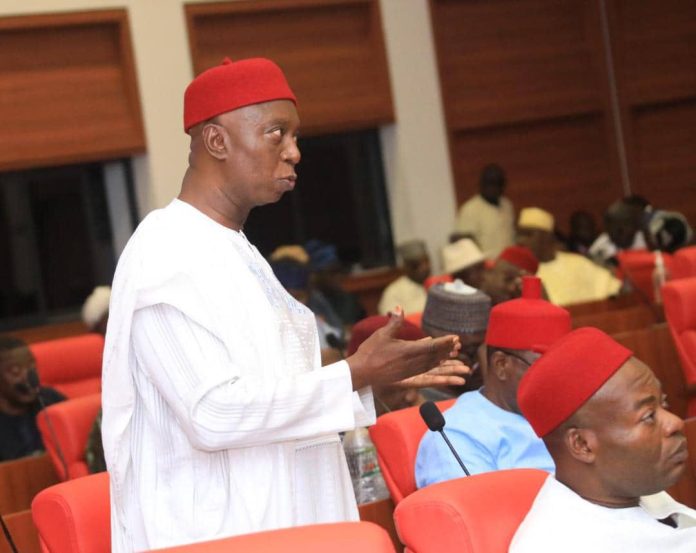By Emmanuel Enebeli
Senator Ned Nwoko’s rumored defection from the Peoples Democratic Party (PDP) to the All Progressives Congress (APC) signals a seismic shift in Delta State’s political dynamics, reshaping the strategic outlook for the 2027 elections.
This anticipated move underscores growing dissatisfaction within the PDP and exposes the party’s internal crises, while also highlighting the APC’s strategic bid to strengthen its foothold in the South-South region.
With Senator Nwoko’s stature and influence, this defection could tilt the balance of power significantly.
Nwoko’s grievances with the PDP are rooted in factionalism, lack of internal democracy, and an absence of transparency.
The senator has openly criticized the party’s inability to manage resources effectively or fund critical developmental projects, such as the Okpai IPP stepdown and the Ogwashi-Uku dam.
These failures have not only disillusioned him but also alienated grassroots supporters in Delta North, a region central to the PDP’s dominance.
For the APC, Nwoko’s anticipated entry presents a rare opportunity to consolidate power. Delta State’s APC has long struggled with internal divisions that have hindered its effectiveness.
However, Nwoko’s alignment with the party could bridge these divides, leveraging his grassroots appeal and commitment to development to unify the APC ahead of 2027.
Strategically, this move could redefine the state’s political landscape. While the PDP has historically dominated Delta State, its vulnerabilities were laid bare in the 2023 elections, especially with former Governor Ifeanyi Okowa’s underwhelming performance in Delta North LGAs during the presidential polls.
In contrast, Nwoko’s senatorial victory in the same region demonstrated his ability to galvanize support, even under challenging circumstances.
Nwoko’s defection also signals a push for federal attention to Delta North. By aligning with the ruling party, he positions himself to attract federal investment in critical sectors like electricity and water infrastructure, addressing long-standing issues of neglect and marginalization.
His pragmatic approach to governance could yield tangible socio-economic benefits for his constituents.
For the PDP, losing Nwoko—the party’s sole senator from Delta State—would be a devastating blow. His departure could further destabilize the party’s organizational structure and erode its credibility.
To recover, the PDP must urgently address internal discontent, rebuild trust, and deliver on its promises to the people of Delta North.
In Delta North, Nwoko’s move could revitalize the APC, transforming the district into a key battleground in 2027.
His focus on infrastructure development and ability to connect with constituents on pressing issues give him a significant edge over rivals, challenging the PDP’s dominance across Delta State.
Ultimately, Nwoko’s defection is a bold statement about the evolving nature of Nigerian politics.
His decision emphasizes the growing demand for performance, accountability, and tangible results in governance.
For those underestimating Senator Ned Nwoko’s political acumen, his track record and the strategic implications of his defection suggest otherwise. The next few years will reveal the full impact of this pivotal shift.
Emmanuel Enebeli, Anipr, is a CEO, entrepreneur, public relations and media strategist, and environmental advocate. Email: enebelli@hotmail.com | Phone: +234 (806) 331 9057.

















